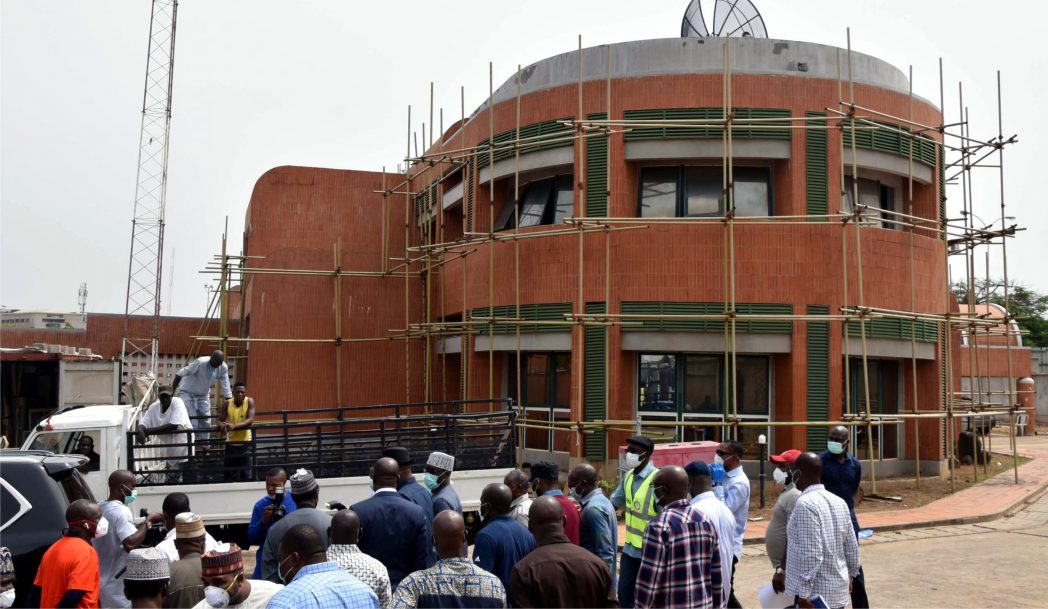Oil & Energy
NYCN Lauds NNPC Over Distribution Of Petroleum Products

The National Youth Council of Nigeria (NYCN) says it is satisfied with the efforts of the Nigeria National Petroleum Corporation (NNPC) towards ensuring adequate distribution of petroleum products across the country in the past seven days of the lockdown in some states to curtail the spread of coronavirus (COVID-19).
The Council, in a statement by its President, Comrade Solomon Adodo, said that it had set up a monitoring team to assess the situation following assurances by NNPC of availability of petroleum products after President Muhammadu Buhari ordered the lockdown in the affected states.
This, the Council said, resulted in Nigerians embarking on a binge of panic buying of petroleum products, despite advice by the NNPC.
“This development necessitated our team to embark on an independent nationwide exercise to monitor the availability and distribution of petroleum products and from results of our field surveys across the country, we can boldly say that the panic buying was needless.
“The NNPC has kept to its word in ensuring constant and efficient availability of petroleum products at recommended prices despite the bottlenecks occasioned by the lockdown”, the statement stated.
While commending the leadership style of the Group Managing Director of NNPC, Mele Kyari, the council urged the NNPC to ensure it had more than sufficient petroleum products in thousands of retail outlets across the country and more products stored up in the depots.
Oil & Energy
NCDMB Unveils $100m Equity Investment Scheme, Says Nigerian Content Hits 61% In 2025 ………As Board Plans Technology Challenge, Research and Development Fair In 2026

Oil & Energy
Power Supply Boost: FG Begins Payment Of N185bn Gas Debt

In the bid to revitalise the gas industry and stabilise power generation, President Bola Ahmed Tinubu has authorised the settlement of N185 billion in long-standing debts owed to natural gas producers.
The payment, to be executed through a royalty-offset arrangement, is expected to restore confidence among domestic and international gas suppliers who have long expressed concern about persistent indebtedness in the sector.
According to him, settling the debts is crucial to rebuilding trust between the government and gas producers, many of whom have withheld or slowed new investments due to uncertainty over payments.
Ekpo explained that improved financial stability would help revive upstream activity by accelerating exploration and production, ultimately boosting Nigeria’s gas output adding that Increased gas supply would also boost power generation and ease the long-standing electricity shortages that continue to hinder businesses across the country.
The minister noted that these gains were expected to stimulate broader economic growth, as reliable energy underpins industrialisation, job creation and competitiveness.
In his intervention, Coordinating Director of the Decade of Gas Secretariat, Ed Ubong, said the approved plan to clear gas-to-power debts sends a powerful signal of commitment from the President to address structural weaknesses across the value chain.
“This decision underlines the federal government’s determination to clear legacy liabilities and give gas producers the confidence that supplies to power generation will be honoured. It could unlock stalled projects, revive investor interest and rebuild momentum behind Nigeria’s transition to a gas-driven economy,” Ubong said.
Oil & Energy
The AI Revolution Reshaping the Global Mining Industry

-

 Politics2 days ago
Politics2 days agoEFCC Alleges Blackmail Plot By Opposition Politicians
-
Business2 days ago
AFAN Unveils Plans To Boost Food Production In 2026
-
Business2 days ago
Industrialism, Agriculture To End Food Imports, ex-AfDB Adviser Tells FG
-

 Sports2 days ago
Sports2 days agoJ And T Dynasty Set To Move Players To Europe
-
Politics2 days ago
Datti Baba-Ahmed Reaffirms Loyalty To LP, Forecloses Joining ADC
-
Politics2 days ago
Bayelsa APC Endorses Tinubu For Second Term
-
Rivers2 days ago
Rivers Police Commissioner Condemns Vigilante Group Over Aluu Attack
-
Business2 days ago
Cashew Industry Can Generate $10bn Annually- Association

